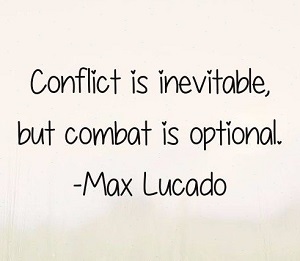No Issues, That’s an Issue. #76
If you’ve ever walked into your meetings or Quarterly offsites and heard someone say “I don’t think we have any issues,” you’re on a slippery slope to mediocrity. If your meetings have become routine or your team looks to you as the source of substance for the agenda for the weekly time you’ve allotted together, then it’s time to consider some questions to better serve yourselves and your company.
The best teams in the world, and the best companies in the world thrive because of healthy conflict. This type of conflict is not mean-spirited and doesn’t involve personal attacks. It is the type of conflict that is founded in passionate debates about finding the “right” answer or strong conversations in search of the truth. Healthy conflict is aimed at ideas, opportunities, points of friction, and making the team, processes or business better.
If you have few or no issues, consider the list of questions below in preparation for your meetings and be prepared for more engagement.
- What’s causing friction? (pain/problems/getting in the way)
- What or who is ticking you off?
- What could we do more effectively/better?
- What are we avoiding?
- What would be a game changer for our team/business?
- How could we improve our processes?
- If we had unlimited resources (time, energy, people, money) what could we do?
- Where could I (our team/department/company) improve most?
- What skills/competencies are we lacking?
- Who should we be working with that we are not currently?
- What needs are underserved in our market?
- Where are we underutilized?
- Where are we at capacity?
- What needs to change to exceed our goals?
- What professional development do I/we need to grow into our future?
You can also find useful meeting tips at this video.
There’s no reason to suffer through a boring meeting. As Benjamin Franklin said, “change the people or change the people. It’s an honor to be on a team and every person needs to come prepared to add value or over time, they may no longer need to be at the table.”
Categories: Sue's Daily Blog


